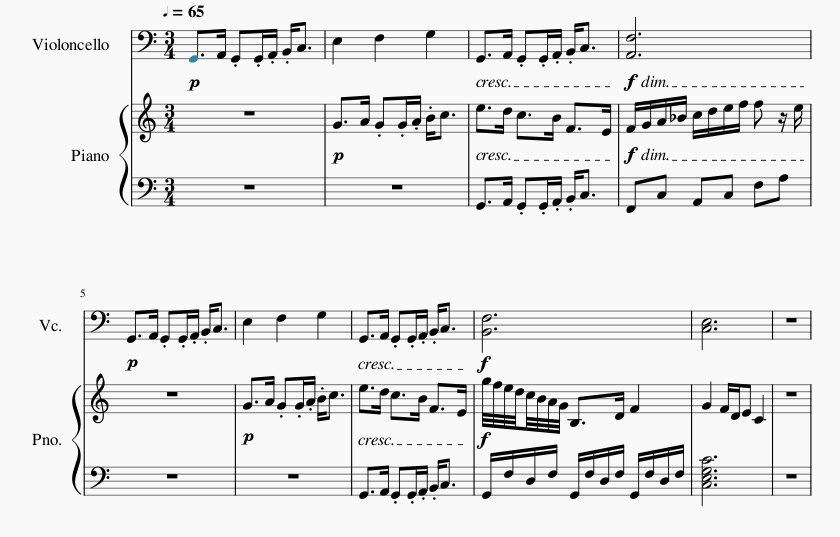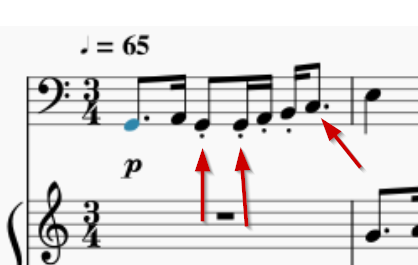So, after a bout of composer's block, I started composing this piece for Cello Piano Duo. I find I have fewer issues with the Cello Piano Duo than the Violin Piano Duo when it comes to things like doubling at the unison, probably because the overtone spectrum of the cello and piano are similar when compared at the same pitch, more similar than that of the violin.
Despite this similarity in the cello and piano overtones, I find that the cello is way more expressive in register changes than the piano. You have that double bass like timbre up to about G2, then you start getting this soulful sound out of the cello as you get closer to the tenor register. In cases when it goes into the treble register(which outside of solo pieces are extremely rare), it has an almost trumpet like projection to its notes.
Anyway, I intended this piece to be an Adagio, so I had the tempo at quarter note = 65 BPM. However, I am finding that I seem to be getting an eighth note tactus. Or to put it in tempo terms, my Adagio sounds like an Allegro. And this is despite some long notes such as dotted half notes in both the cello and the piano.
I'm considering changing the time signature to an eighth note time signature to reflect this faster tactus. However, should I go ahead and do that? For 3/4, the 2 eighth note time signatures that make the most sense are 6/8(same relation to 3/4 as 8/8 has to 4/4) which switches the meter from triple to duple in the vast majority of cases, and 9/8 which is basically 3/4 with implicit triplets.
The whole rhythmic relation would change, were I to change it to 9/8, and I sometimes find it difficult to figure out what would conserve the rhythmic relation, especially if there are dotted rhythms or triplets other than eighth note triplets in the original 3/4. And as I said before, a change to 6/8 would most likely mean a change to a duple meter. I mean, when is 6/8 in triple meter?
Here is an excerpt of my piece in the original 3/4 and tempo:
You can probably see why I am feeling an Allegro rather than an Adagio here despite the slow quarter notes and thus considering changing the time signature.
But should I change the time signature to an eighth note time signature? Or should I leave it as is, regardless of it feeling faster than the tempo indicates? If it were in 2/4 or 4/4, this would be easier for me to decide. But with it being in 3/4, it is harder for me to decide, as the 9/8 would be harder for me to figure out how to conserve the rhythmic relation and the 6/8 would switch meter.


